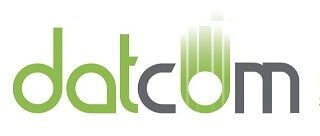Businesses are volatile entities that can change drastically at any given moment. All it takes to eliminate data and cause disaster is an unexpected natural disaster, like a flood or fire, or a hardware failure that wipes out mission-critical data. The fact remains that your organization could face significant downtime from data loss, and the future of your business could hang precariously in the mix.
Why Backup and Disaster Recovery is Necessary
If your business doesn’t have a reliable way of recovering from a data loss incident, you need to implement one as soon as possible. It’s been proven time and again that businesses that fail to recover their data within seven days of the incident, will likely go out of business within one year. Here are some of the most common reasons why data loss disaster is so prevalent in the business world.
- Natural disasters: Floods, fires, electrical storms, tornadoes, hailstorms, and more, all have the potential to wipe out your physical infrastructure, and in turn, your digital assets. Therefore, you need to take steps to implement backup and disaster recovery tools, especially if you live in an area that’s prone to weather hazards.
- Cyber attacks: Data breaches are known to cause data loss, either due to the destruction of data, or the theft of it. Furthermore, due to the unpredictability of what a virus or malware can do to your infrastructure, it’s recommended that you try to avoid cyber attacks as often as possible. In particular, ransomware can lock your data away and force you to pay a ransom. More often than not, having a data backup solution is the only way to get your data back without shelling out the big bucks.
- User error: One of the most common causes of data loss is user error. People make mistakes, and even those who have access to data for the purpose of fulfilling their day-to-day duties could accidentally delete a file or move it somewhere it’s not supposed to be. Also of note, users may accidentally hand over credentials to hackers performing phishing scams, which can be a major problem.
- Hardware failure: It’s inevitable that your technology will grow old and be rendered obsolete. It’s your responsibility to notice the warning signs and to replace your technology before it fails. If a critical server component were to go down, you would experience not just downtime, but massive data loss.
What You Need to Look For
Depending on your business’s specific needs, you’ll require a data backup and disaster recovery solution that’s designed to take regular backups and rapidly recover data, among other things. Here are three topics to consider when determining which kind of BDR solution that you want for your business.
- Cloud and off-site backup: You don’t want to store your data backups on in-house tapes. Rather, you want them secure in an off-site location, like the cloud or a data center. This way, you can know that your data is stored in a compliant location that can’t be damaged by natural disasters.
- Quick recovery time: You want to be able to rapidly deploy your business’s data to your infrastructure in order to minimize downtime. Tape backup can make this part of the recovery process long-winded and wasteful, but BDR can automatically deploy your data through the cloud, making recovery practically instantaneous.
- Comprehensive backup: Furthermore, you want to make sure that your data is as recent as possible. Tape backup is inefficient for this purpose, while BDR can take backups of your data as often as every fifteen minutes – maybe even more often.
For more information about BDR, business continuity, and more, contact DatCom, LLC at (903) 320-5330.


